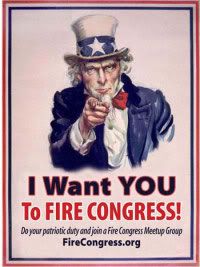Results 1 to 1 of 1
Thread: Freedom and Progress
Thread Information
Users Browsing this Thread
There are currently 1 users browsing this thread. (0 members and 1 guests)
-
12-10-2009, 10:43 PM #1
Freedom and Progress
Freedom and Progress | Print | E-mail
Written by Charles Scaliger
Thursday, 25 June 2009 06:00
For more than two centuries, freedom has been the catchword of Western Civilization. What began as an abstraction from the pens of Locke, Sidney, Montesquieu, Beccaria, and others has become, in the more than 230 years since the Declaration of Independence was signed and published to the world, an all-embracing pretext for political activity. Where rulers once justified their activities on the basis of discredited doctrines like the divine right of kings and the absolute and indivisible sovereignty said to inhere in the person of a monarch, governments of nearly every stripe today proclaim the sanctity of freedom.
Yet freedom is diminishing in many portions of the globe, including the United States of America, where human liberty in its fullness was first put into robust practice. The form of the state known to our ancestors has changed radically over the last few centuries â the hereditary princes, perfumed courtiers, entrenched aristocrats, arbitrary and excessive punishments, and established churches known to our ancestors of a few centuries back are no longer with us. But the average American today is remarkably less free, politically and economically, than his predecessors of one, two, or even three centuries past. No ranting dictators have arisen, no Nuremburg rallies have taken place, no concentration camps erected nor Gestapo organized, yet freedom in America is being lost at a terrifying clip. We are in the grip of the soft, egalitarian despotism that de Tocqueville, the cautionary student of American popular government in its infancy, warned of when he foresaw:
an innumerable crowd of like and equal men who revolve on themselves without repose, procuring the small and vulgar pleasures with which they fill their souls.
Over these is elevated an immense, tutelary power, which takes sole charge of assuring their enjoyment and of watching over their fate. It is absolute, attentive to detail, regular, provident, and gentle. It would resemble the paternal power if, like that power, it had as its object to prepare men for manhood, but it seeks, to the contrary, to keep them irrevocably fixed in childhood.... It provides for their security, foresees and supplies their needs, guides them in their principal affairs.
The sovereign extends its arms about the society as a whole; it covers its surface with a network of petty regulations â complicated, minute, and uniform â through which even the most original minds and the most vigorous souls know not how to make their way.... It does not break wills; it softens them, bends them, and directs them; rarely does it force one to act, but it constantly opposes itself to oneâs acting on oneâs own.... It does not tyrannize, it gets in the way: it curtails, it enervates, it extinguishes, it stupefies, and finally reduces each nation to being nothing more than a herd of timid and industrious animals, of which the government is the shepherd.
Rise of Regimentation
Modern America is succumbing to a sort of administrative usurpation, a triumph of the spirit of misnamed âprogressivismâ



 LinkBack URL
LinkBack URL About LinkBacks
About LinkBacks




 Reply With Quote
Reply With Quote

Illegal immigration is costing American hospitals billions of...
04-27-2024, 07:55 PM in General Discussion